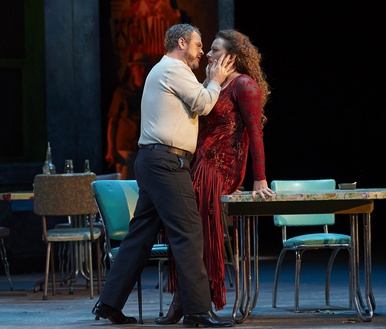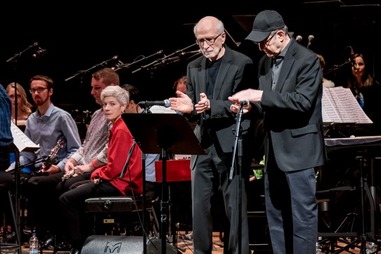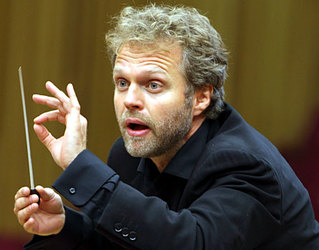 Pomeroy and Margaine steam up the COC's Carmen. Photo: Michael Cooper.
Pomeroy and Margaine steam up the COC's Carmen. Photo: Michael Cooper. The production has many good things going for it: intelligent staging from Toronto director Joel Ivany (in his debut with the COC), and intricately realistic sets and costumes from Michael Yeargan and François St-Aubin, respectively. Strictly speaking, this Carmen is an update, placed in Cuba in the 1940s. But it’s done so smoothly and effectively that most of the opera fundamentalists in the audience – the kind of people who get their knickers in a twist about the “composer’s intentions” – probably didn’t even realize they should have felt offended.




 RSS Feed
RSS Feed

